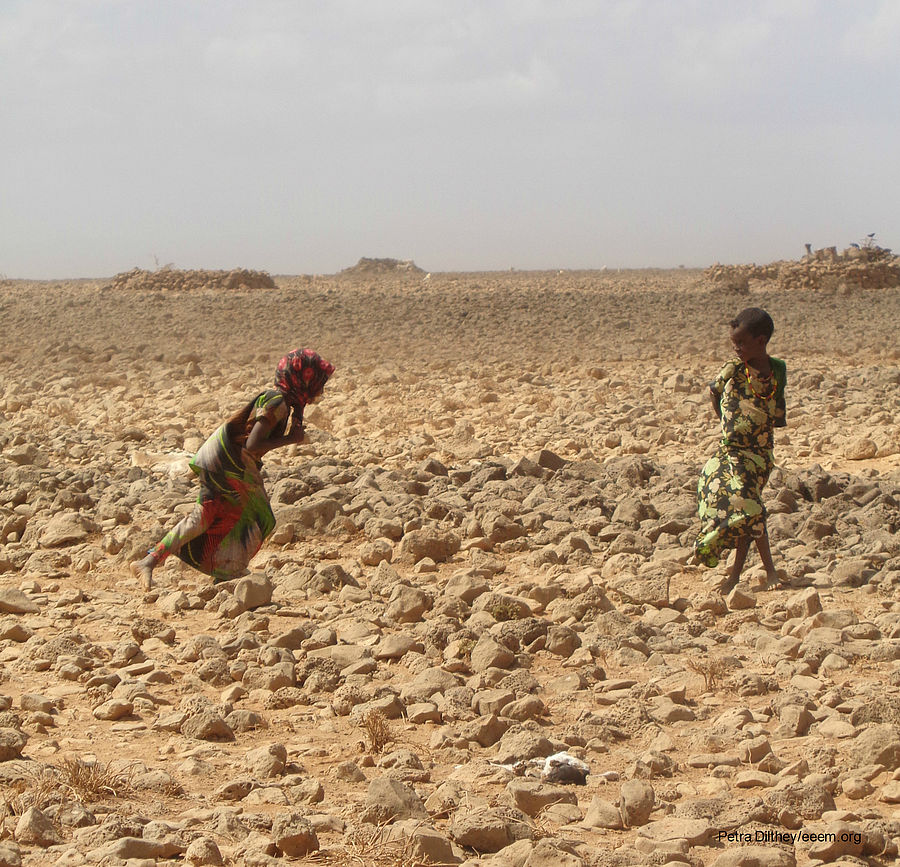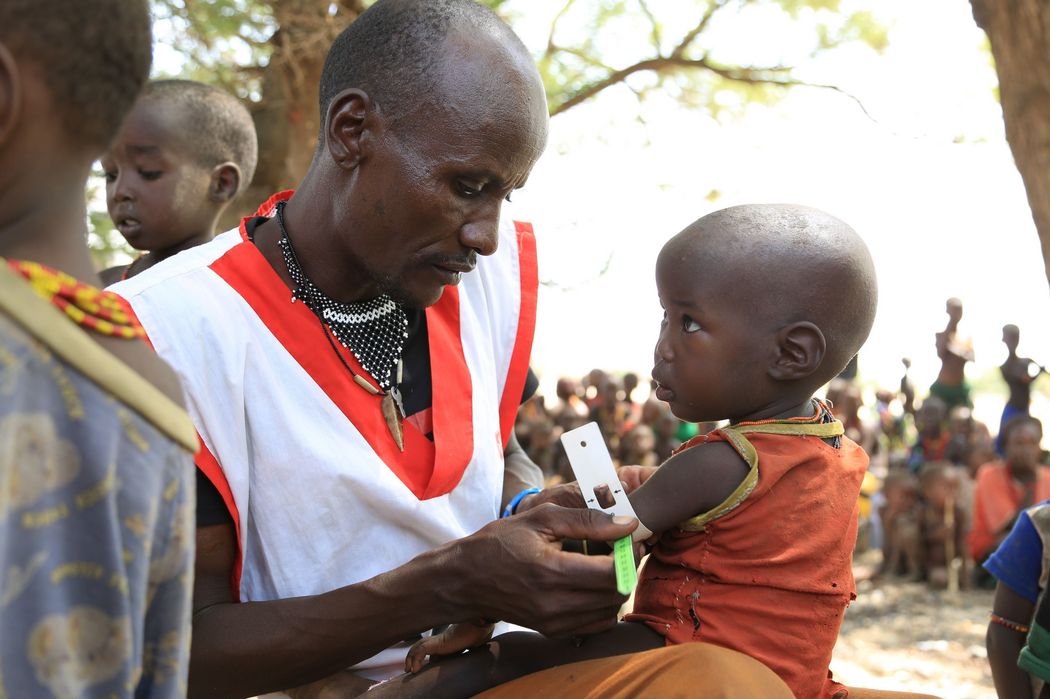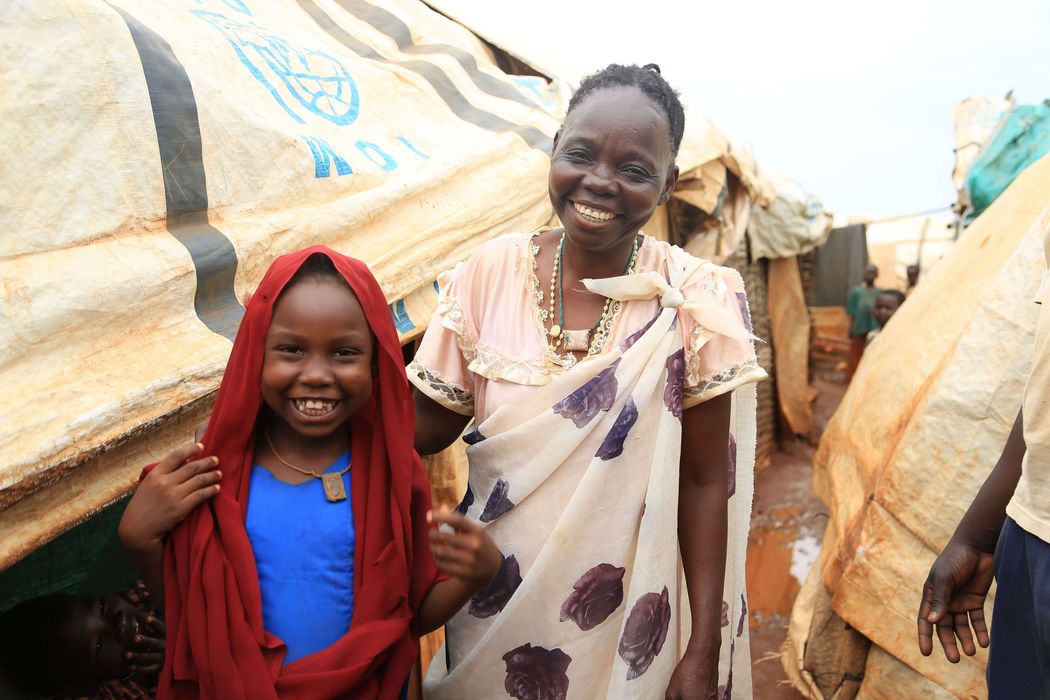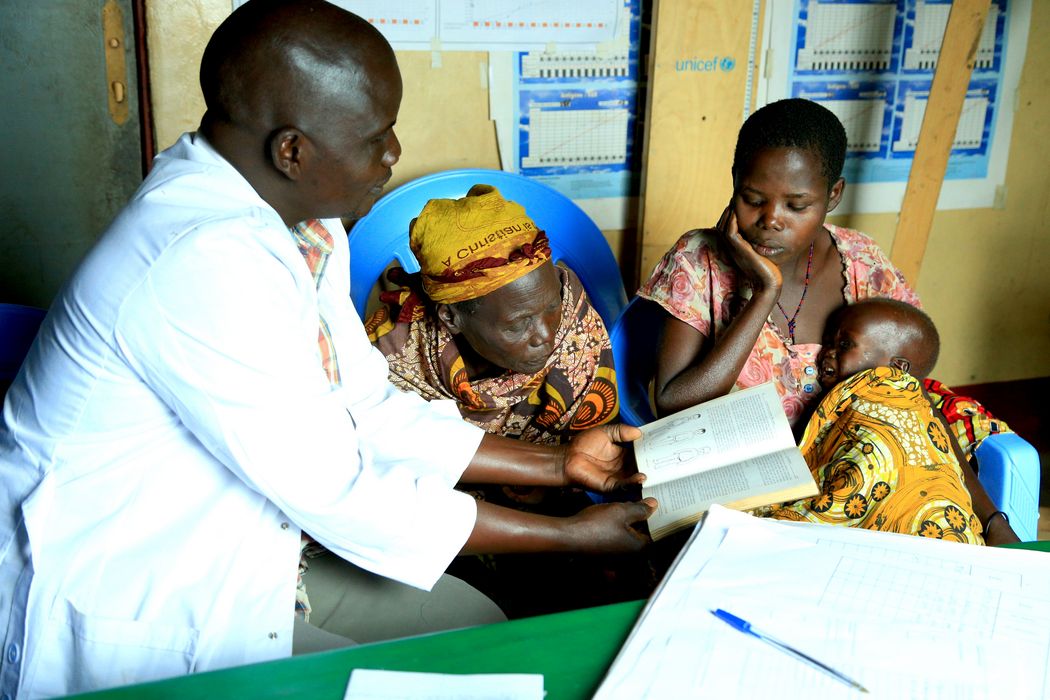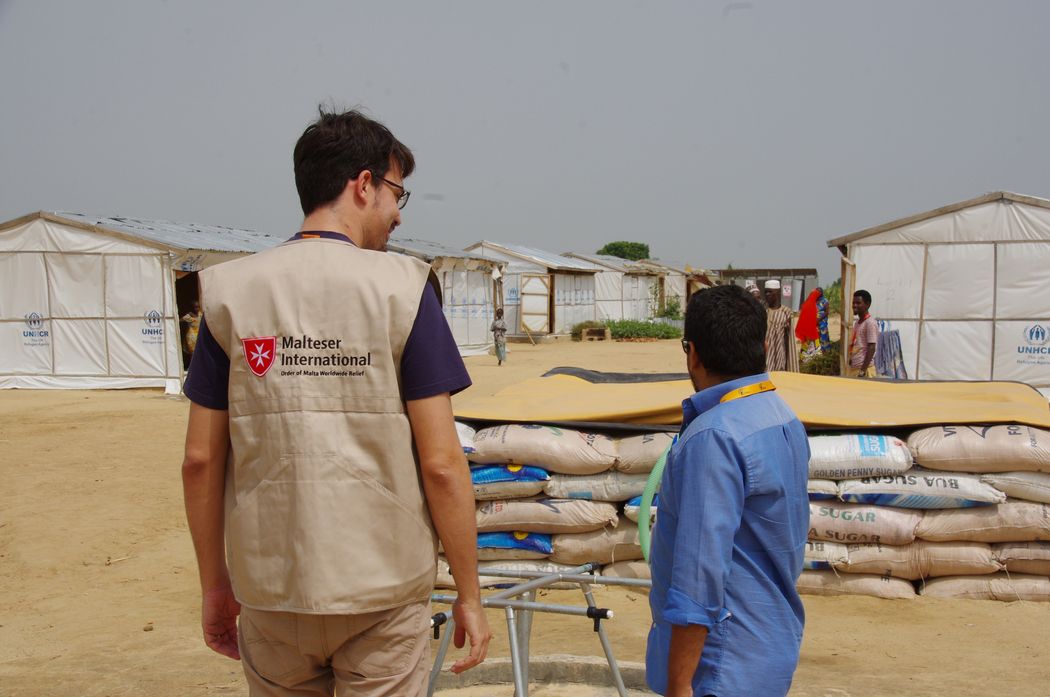The drought is over, but suffering continues
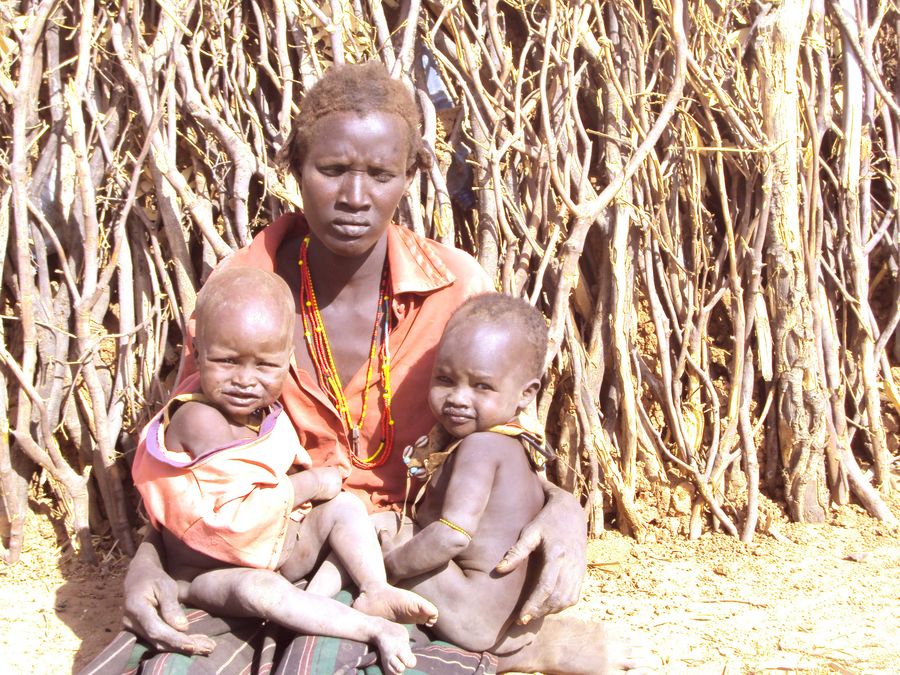
2017 was a terrible year for northern Kenya. Two consecutive years of prolonged droughts resulted in the worst hunger crises the region had seen in decades. Mosong Arulle from Illeret recounts: "At first our goats did not produce milk anymore, then they died. I did not how to feed my five children. The youngest of them are twins, they are two years old. When the rains stopped, I hardly had any food to give them. It was a very difficult time.” Mosong’s neighbor, Kolle Nyakan, a mother of seven also had the same to say of her experiences during the drought. Getting enough food for her family to survive was a problem. Malteser International launched an emergency intervention by providing life-saving food to help families in the area survive the drought.
Located on the eastern shore of Lake Turkana in northern Kenya, near the border to Ethiopia and a three-day journey to the capital city Nairobi, Illeret is a small village with a barren desert-like landscape, and low vegetation growing out of a sunbaked soil. Much of the land here is unsuitable for agriculture, and the high salinity of nearby Lake Turkana means its waters can not be used for plant irrigation. Most of the population here raise livestock for a living. Usually, two rainy seasons in a year ensure that there is enough grass to keep the animals healthy, but the devastating drought of 2017 decimated around 80 percent of the livestock, leaving many households destitute.
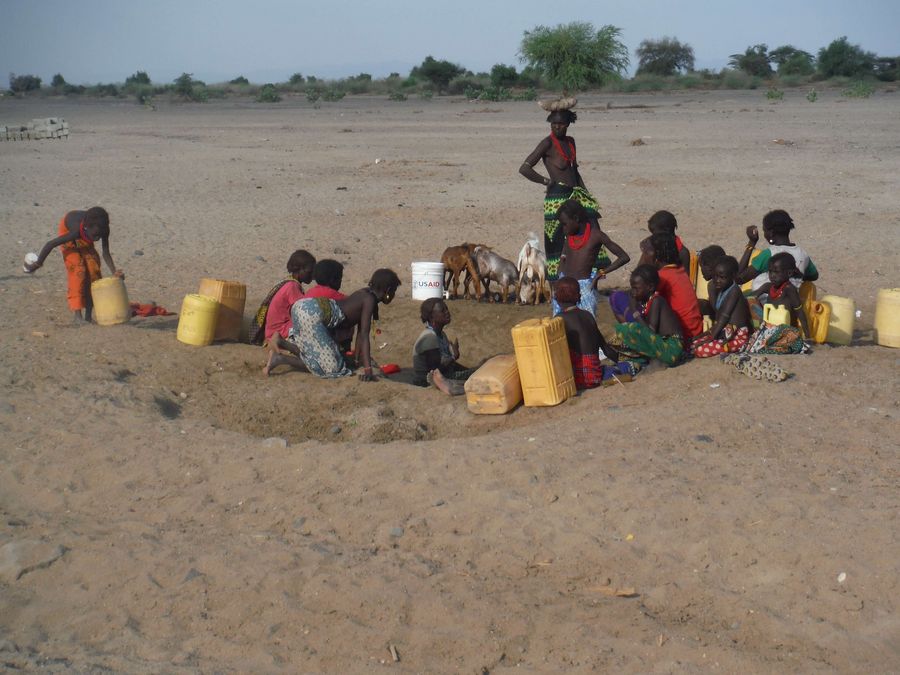
After the months of drought, the long-awaited rains finally came in May. However, the torrential rains caused severe flooding, killing livestock and damaging roads, many of which have not been rebuilt till date. Later in the year, the rains became regular allowing the soil to regenerate. But the crisis is far from over. The herders are slowly recovering from the drought, and re-stocking their herds. It will take some time for the cattle to produce milk and offspring needed for the herders to survive.
Anne Hild, Country Desk Officer for Kenya and Guinea at Malteser International believes the problem in northern Kenya is very complex. “Life has become difficult for the people here in recent years. Climate change has made drought more frequent and severe. The herders are forced to travel even longer distances with their livestock to find pasture. A growing population and an increasingly shrinking area of land has also added to the problem. 23,000 people currently live here, a 30-percent increase ni the last ten years,” she says.
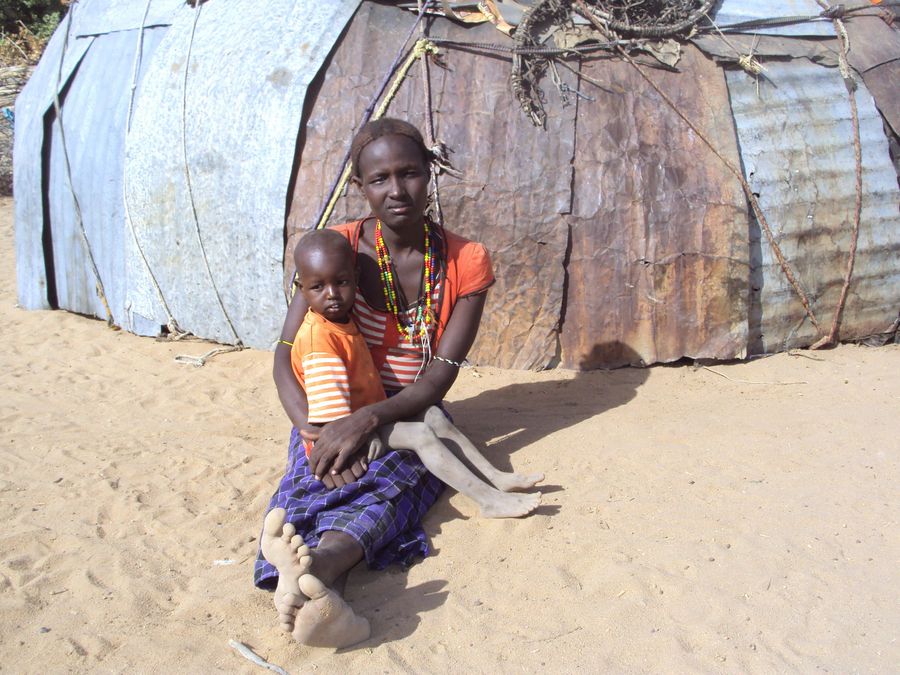
Simply relocating is not an option for Kolle Nyakan. “We have always lived here. I would not even know where to go,” says the 45-year-old. Kolle and her seven children have to live on their own for most of the year, because her husband goes out to look for grazing land with the cattle. But life for the family in Illeret has been tough. “My children are starving again. They are very thin and I am worried. We did not have any extra food because the animals are just recovering. But for some weeks now, it has not rained. My children need more food, but I have nothing to give them.”
“It is hard to convince anyone to abandon their ancestral land and live somewhere else. What we are doing is to try and show them more sustainable approaches to livestock economy so that they can continue to live here without depending on external help,” says Hild. “This means, for instance, advising them to downsize their herds and jointly agree on how best to use available grazing land. We also recommend switching to camel herding as camels are more drought-resistant than sheep or cows. Another option would be to sell off some of their livestock before a drought, and then buy them back after. That being said, the people also have to look for alternative income opportunities so they can adapt to the increasingly difficult circumstances.”
Find out more about our projects in Kenya
(February 2018, Katharina Kiecol)
These might interest you
How we are helping
ERROR: Content Element with uid "371156" and type "dce_dceuid4" has no rendering definition!

